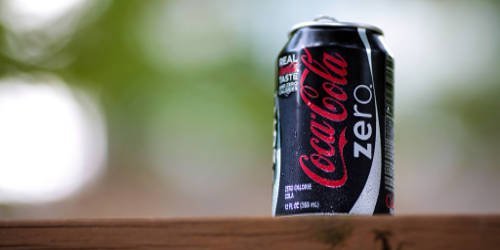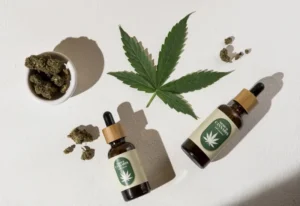Coca-Cola Zero is a non-alcoholic beverage produced by the Coca-Cola Company and marketed in 44 countries including, since 2007, Italy.
Why "zero"? Because, as they would have us believe, this drink has zero sugar and zero calories.
However, one should ask oneself, when you prefer Coca Cola Zero to the normal one, if you know why you made this choice and above all if you really know what you are drinking.
Certainly, the advertising for a product with zero sugar is attractive and can be misleading. In fact, if you look at the true content of the beverage, you will be surprised and, above all, you will realize that, instead of a product that you believe is less harmful to your health, you are actually drinking a mix of potentially dangerous substances.
Yet I have seen this product ordered several times by people who are very conscious of their physical shape..
If we deepen our knowledge of this product, we discover that Coca Cola Zero does not actually have zero calories, but "Zero" is only an honest approximation and marketing strategy at the same time.
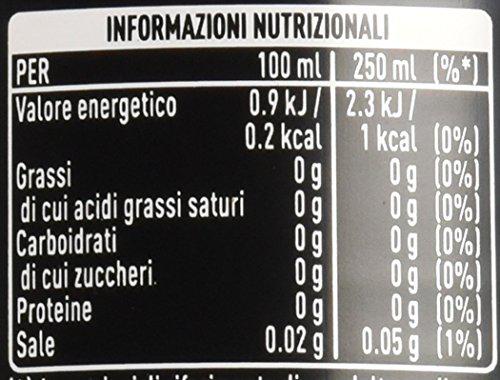
The exact content is in fact 0.2 calories, but in order to reproduce the sweet taste of sugar, which represents about 10% of the classic version (each country has a slightly modified recipe to adapt to local taste, a 330ml can may have from 32g in Thailand to 39g in Canada), artificial sweeteners are added.
Here is the mystery explained as to why, although it does not contain sugar, the beverage is so sweet. It is not actually sugar, understood as "sucrose", that sweetens it, but rather the substances that, if you read carefully, are listed among the ingredients; just turn the bottle and read the strange writing "Contains Phenylalanine".
To be exact, these are the ingredients present in Coca Cola Zero in Italy:
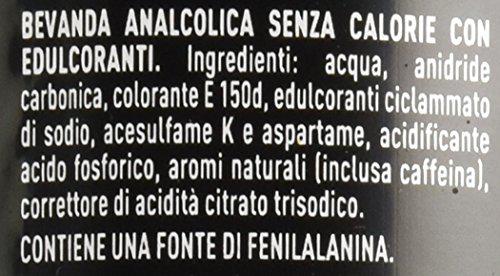
phenylalanine As we can see, there are several sweeteners present in the beverage: sodium cyclamate, acesulfame k, and aspartame.
Out of curiosity, let's compare the composition of this beverage with other similar ones and we discover that in Coca Zero there is one more sweetener than those contained in Coca Light and Pepsi, and this ingredient is even banned in the United States: sodium cyclamate.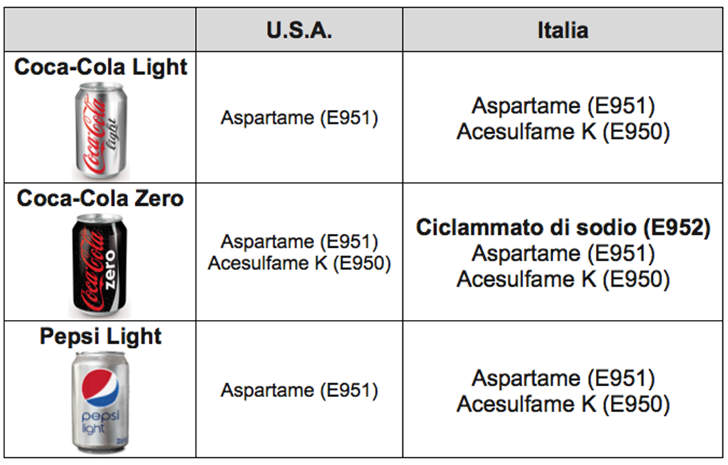
These artificial sweeteners have much sweeter properties than refined sugar, so for example aspartame is 160-200 times sweeter than sugar (understood as sucrose), while the calorie content is more or less equivalent (4 Kcal/gram). For this reason, minimal amounts of aspartame are sufficient to sweeten the beverage, with a total calorie content that is completely negligible.
Their use, therefore, would be indicated in low-calorie diets and in cases of diabetic and insulin-resistant individuals,thanks to their ability to not significantly alter blood sugar levels. blood glucose.
But are these advantages related to calorie savings justified by the use of these sweetening substances, on which there has been a heated debate for years regarding their potential danger?
We will soon return to the subject with an article on the risks or not of aspartame, which according to some has even been shown to be a carcinogenic substance, as has sodium cyclamate, which is banned in the United States but allowed in Europe.
Some studies have even concluded that their use contributes to weight gain, the onset of metabolic diseases, type 2 diabetes, and cardiovascular diseases. These beverages sold as dietetic would therefore be fattening despite their very low calorie content due to their negative impact on the body's metabolism.
According to these studies, not only do supposedly "diet" drinks not help as a support in low-calorie diets, but they have also been shown to be harmful, as habitual consumers are at greater risk compared to those who do not use them.
So, we are left with this question: is it worth saving a few extra calories by preferring Coca Zero but consuming potentially very toxic chemicals for our cells?


